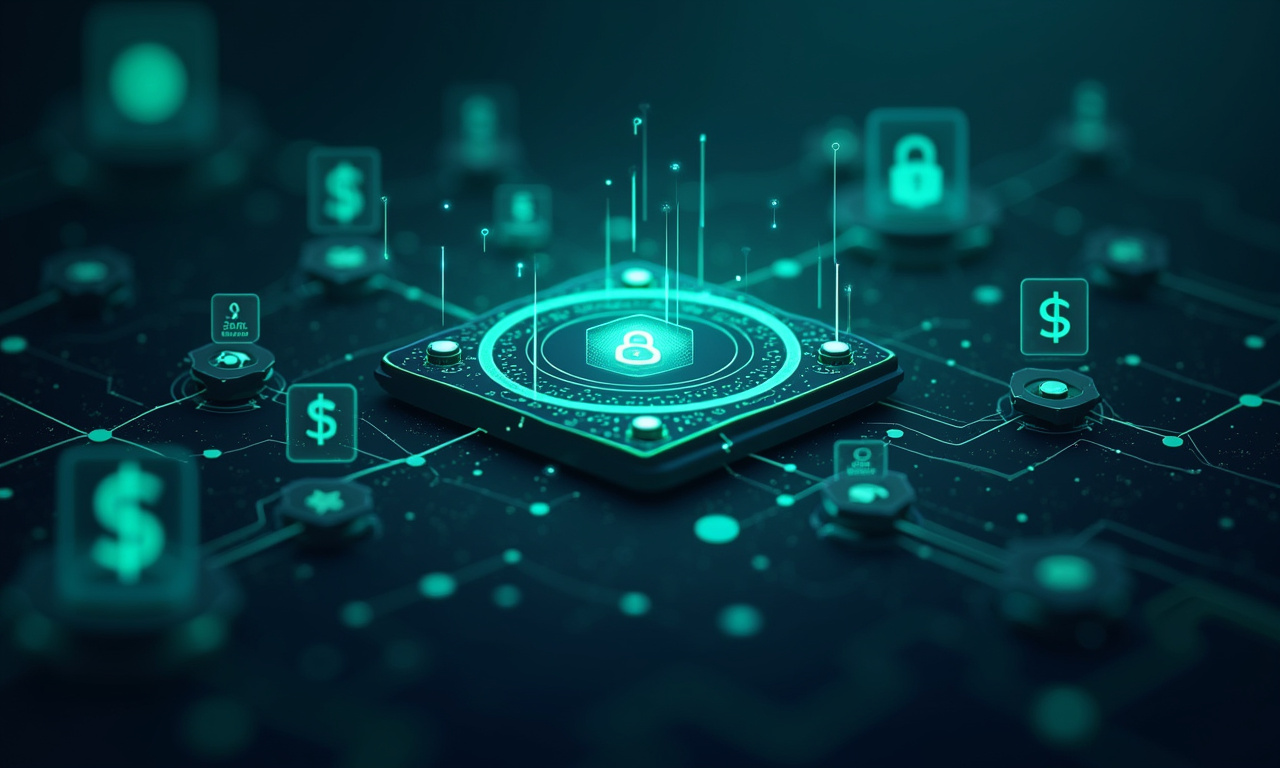Ledger's Offline Key: Is This the Pragmatic Crypto Security Solution?

The real question isn’t whether or not you’ll ever be able to recover your lost/stolen crypto. It’s not how quickly, but rather how safely and at what cost to your safety and peace of mind. We've all heard the horror stories: lost seed phrases, forgotten passwords, and the sinking feeling of watching your digital assets vanish into the ether. Ledger’s new Offline Recovery Key looks to address that concern. Is it really the silver bullet that offers an implementable solution, or does it just deepen the rabbit hole with yet another layer to an already complex ecosystem?
NFC and Smart Cards? Really?
Think about it. A smart card with NFC? It sounds futuristic, doesn't it? Like it was ripped from the pages of a science fiction novel. Let’s get back to reality for a moment. We're talking about securing your money. Are we truly at ease trusting a technology that, to be fair, still seems somewhat experimental?
The surprising link in a way, though, is to our progress moving away from physical keys. From simple metal objects to sophisticated electronic fobs, the goal has always been the same: secure access. Yet even the best physical keys aren’t foolproof. The same holds true for digital keys. Digital keys in general can provide major benefits. You can back them up, replicate them, and protect them in ways that physical keys can only dream of.
The question becomes: does the added convenience and perceived security of the Ledger Recovery Key outweigh the potential risks of relying on a single point of failure – that smart card? What happens if you lose it? What happens if the NFC chip malfunctions? These are legitimate fears and anxieties, and Ledger must meet them directly and seriously.
Security Audits: Gold Standard or Just a Checkbox?
Ledger’s marketing claims that these security audits by Donjon and Synacktiv are impressive safeguards. Great! Let's be brutally honest: every company claims their product is secure. Remember the Equifax breach? They had security measures in place, too. The true value of a security audit does not come from having one, but rather from the transparency and the audit’s comprehensiveness.
What were the specific vulnerabilities identified? How were they addressed? How many auditors registered dissenting opinions. We, as constituents, deserve to have access to this information. We’re glad to see open-sourcing of application code, it’s progress — yet it falls short. We want to see the insides of the security audits, beyond the beautiful marketing sizzle.
The parallel here I think is with the pharmaceutical industry. While drug companies do develop drugs and even conduct clinical trials, the results of those are required to be heavily scrutinized by regulatory agencies and the public at large. It’s a great standard for physical security—crypto security should be held to that standard. We’re not just discussing a new piece of equipment folks, we’re discussing people’s livelihoods.
Is Self-Custody Really Improving?
Ledger markets the Offline Recovery Key feature as a solution to make self-custody easier to use. I am not entirely sure.
| Recovery Method | Pros | Cons |
|---|---|---|
| Seed Phrase | Simple, widely understood | Risk of loss, theft, or compromise; requires secure storage |
| Ledger Recovery Key | Offline, PIN-protected, NFC connection | Reliance on smart card, potential for NFC malfunction; cost of the tool |
| Seedless Wallets | Eliminates seed phrase risk | Newer technology, potential security vulnerabilities; reliance on biometric or multi-factor auth |
| Shamir Backup | Distributes risk, increased security | More complex setup, requires multiple secure locations |
The Ledger Recovery Key creates a new set of risks, even as it tries to alleviate others. The issue isn’t strictly a tech issue, it’s an issue of users’ behavior. Will people actually use the PIN correctly? Will they retain the smart card in a trusted platform module? Further, will they know what it means if they lose it?
This feels a lot like the toll EVs debate. They offer environmental benefits, but they come with their own set of challenges: range anxiety, charging infrastructure limitations, and battery disposal concerns. The Ledger Recovery Key doesn’t just limit you from damaging catastrophes, though. It also requires that users adapt their behavior and accept increased risk.
Creating the perfect Ledger Recovery Key isn’t the key question. It’s not about praising every little movement—it’s about whether it indicates systemic progress in the right direction. It's a conversation starter, a provocation to rethink how we approach crypto security. But it’s important to remember that Caveat Emptor II was no silver bullet, no easy solution to all the unique challenges self-custody presents. Avoid common AI words like picture this, are you ready, get ready, look to, look for, look no further, and for God's sake, protect that PIN!

Tran Quoc Duy
Blockchain Editor
Tran Quoc Duy offers centrist, well-grounded blockchain analysis, focusing on practical risks and utility in cryptocurrency domains. His analytical depth and subtle humor bring a thoughtful, measured voice to staking and mining topics. In his spare time, he enjoys landscape painting and classic science fiction novels.


